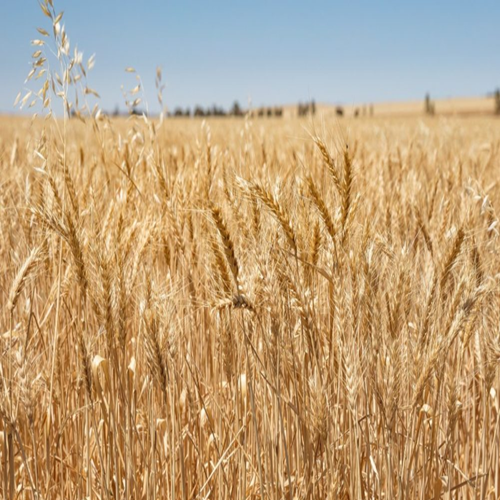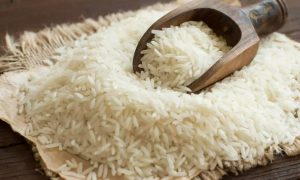Wheat procurement : Haryana to set up round-the-clock nakas in border districts

Ahead of the massive wheat procurement season starting from April 1 across 417 purchase centres, Haryana’s food, civil supplies and consumer affairs department on Friday requested the DGP to set up round-the-clock nakas in all the border districts and instructed DCs “to closely monitor procurement operations” to ensure seamless arrival, purchase and lifting of foodgrains.
To deal with this problem, additional chief secretary (ACS-food, civil supplies and consumer affairs) Sumita Misra on Friday requested DGP Shatrujeet Kapur to direct all the superintendents of police to set up round-the-clock nakas in all the bordering districts so that traders may not bring the produce for sale in Haryana mandis. (HT File)
Ahead of the massive wheat procurement season starting from April 1 across 417 purchase centres, Haryana’s food, civil supplies and consumer affairs department on Friday requested the director general of police (DGP) to set up round-the-clock nakas in all the border districts and instructed deputy commissioners (DCs) “to closely monitor procurement operations” to ensure seamless arrival, purchase and lifting of foodgrains.
During the upcoming rabi marketing season, Haryana will procure gram in 11 mandis and mustard in 106 mandis also. While mustard will be procured from March 26 at the rate of ₹5,650 per quintal, gram will be procured from April 1 at the rate of ₹5,440 per quintal.
The size and scale of the procurement operations can be gauged from the fact that last year Haryana had procured about 63 lakh metric tonne (LMT) wheat. This year the estimated production of mustard is expected to be over 14 lakh MT, sunflower 50,800 MT, 26,320 MT of gram, while 33,600 MT production of summer moong is likely this season.
As crop procurement remains largely hassle free in Haryana, traders also bring grains from other states to sell in the state, causing disturbance in the arrangements.
To deal with this problem, additional chief secretary (ACS-food, civil supplies and consumer affairs) Sumita Misra on Friday requested DGP Shatrujeet Kapur to direct all the superintendents of police to set up round-the-clock nakas in all the bordering districts so that traders may not bring the produce for sale in Haryana mandis.
In a letter to the DGP, the ACS said that the practice of traders bringing the produce from other states not only lead to harassment of the farmers but also disturb procurement arrangements of the state government.
While drawing the attention of the DGP towards a large number of farmers coming to the mandis to sell their produce, Misra said that to ensure procurement operations are conducted in an uninterrupted manner, it is imperative to put in place adequate security arrangements in the mandis and to avoid any untoward situation.
“I would, therefore, request you to issue suitable directions…to make arrangements for security and traffic regulation in the mandis during the procurement season and nakas in the bordering districts,” said the ACS in her letter to the DGP.
In another communiqué to the DCs, the ACS (food, civil supplies) said that as per the government’s decision, minimum support price (MSP) of the procured crops will be transferred to registered farmers bank accounts through e-kharid portal. The mapping and monitoring of all parameters will be facilitated through the Public Finance Management System (PFMS).
Advising the DCs to ensure timely mobilisation of the procurement agencies as per the scale of operations in their districts, the ACS has directed the DCs for random spot inspections of mandis, cleanliness in all purchase centres and “timely lifting of foodgrains” to avoid glut in the mandis.
“This (spot inspections) will instil confidence in farmers and facilitate better coordination amongst different agencies in the manids,” Misra said, reiterating that the procurement operations cannot be successfully carried out without the active support and involvement of the district administration.
The agencies involved in the procurement will be food, civil supplies, and consumer affairs department, HAFED, HSWC and the FCI.
In Haryana, about 25 lakh hectares are under the wheat crop and estimated production of wheat is about 120 lakh MT. The government is likely to procure about 65 lakh MT for the central pool.
Meanwhile, it is learnt that procurement of summer moong will be done at the price of ₹8,558 per quintal from May 15 onwards. Likewise, procurement of sunflower will take place from June 1 to June 30 at the rate of ₹6,760 per quintal.
Already the state-level committee of the food, civil supplies department headed by Misra has reviewed the labour charges for loading and unloading of food grains in a meeting held in January.
One of the significant decisions taken in that meeting was that all the trucks transporting the procured foodgrains should have GPS/VLTD (vehicle location and tracking device) as notified by the Union ministry of road, transport and highways.
The department has decided to ensure that vehicles used for the transportation purpose have functional VLTDs which should be registered and integrated with software/mobile app/portal of service provider selected for the purpose and e-Kharid portal.
These VLTDs trackers will be monitored with the assistance of a third party and the movement of procured food grains (wheat, etc) from mandis to storage points will be tracked.














